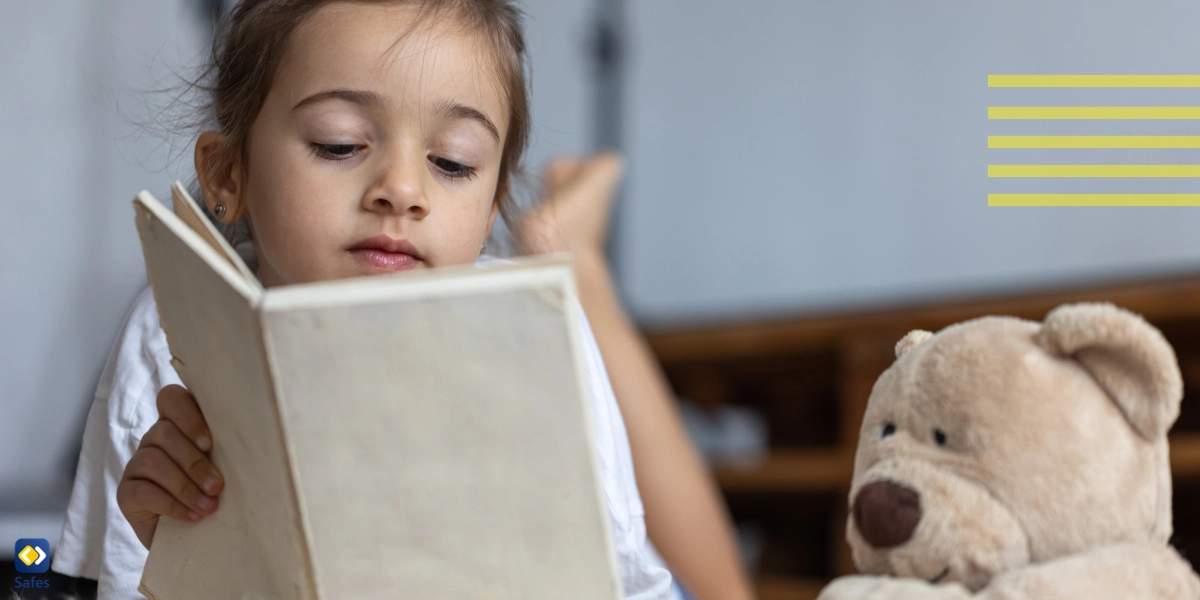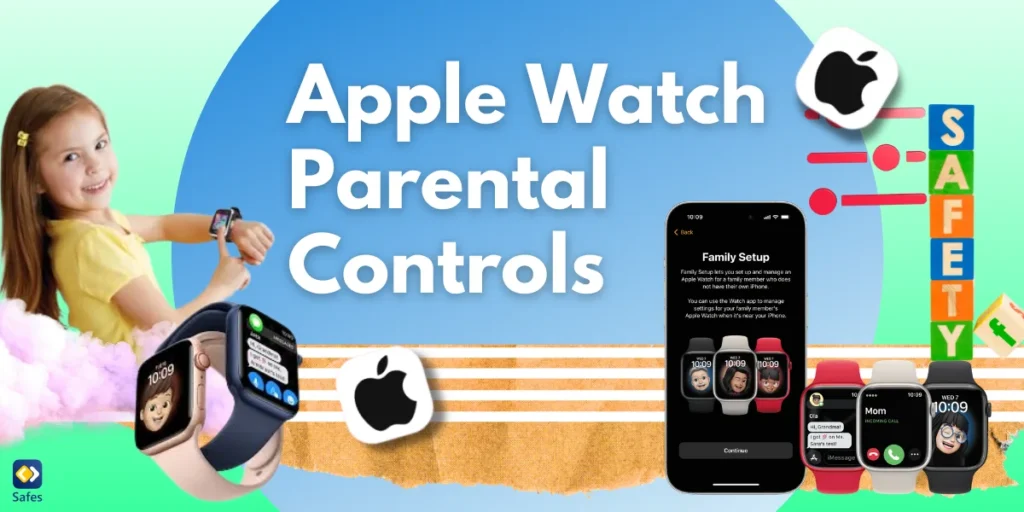Parenting can resemble a thrilling rollercoaster, filled with ups and downs. It often feels as though advice is coming from all directions, solicited or not. The challenge lies in discerning the truly valuable guidance from the rest. In today’s information age, the abundance of advice can lead to self-doubt and conflicting suggestions, making you question your parenting decisions.
Download and Start Your Free Trial of the Safes Parental Control App
In this blog post, we aim to debunk common parenting myths. Our goal is to help you differentiate fact from fiction, enabling you to approach your parenting journey with greater confidence and less uncertainty. Let’s dive in!
The Perfect Parent Myth
Let’s start with the biggest myth of them all: the idea that there’s such a thing as a perfect parent. Perfect parents are not real, and striving for perfection can lead to frustration and disappointment. Here’s the scoop: every parent makes mistakes. Mistakes are like pit stops on the parenting highway.
The whole idea of being a perfect parent usually comes from society’s crazy-high standards, those picture-perfect images on social media, and advice that sounds good but is as realistic as flying pigs. It’s crucial to keep in mind that parenting isn’t a race to achieve perfection. Instead, it’s a journey filled with twists and turns where both you and your child grow. Mistakes are valuable opportunities for learning and personal growth. So, breathe easy – you’re doing just fine!

“Good” Parents Never Get Angry
Parents are only human, and feeling anger from time to time is natural. It’s essential to teach children that emotions like anger are normal and can be managed constructively. Instead of aiming for perfection, focus on modeling healthy ways to express and resolve anger.
Showing anger in a controlled and respectful way can be an important teaching moment for children. It helps them understand that it’s okay to have emotions but also that there are right ways to handle them. When you acknowledge your feelings and talk about them with your child, you’re showing the significance of open communication within the family.
Screen Time Is Always Harmful
While excessive screen time can have negative effects, not all screen time is created equal. Educational apps, quality content, and interactive games can offer valuable learning experiences. The key is balance; monitor your child’s screen time and encourage a mix of activities, including outdoor play and reading.
In today’s digital age, screens are an integral part of children’s lives, and they can be a valuable tool when used mindfully. Instead of demonizing screens, focus on setting reasonable limits and providing guidance on age-appropriate content. A parental control app like Safes can help you do that effortlessly. This app allows you to set specific times during which your child can access their phone; the rest can be dedicated to offline activities. Safes is an especially good choice because it can easily be installed on all devices such as iOS, Android, and Windows. Sign up now with Safes and navigate parenting myths with confidence. Try a 2-week free trial for secure insights!
Children Should Be Busy All the Time
One of the most common parenting myths is that children should always be productive. In today’s fast-paced world, there’s often too much pressure to keep children busy with various activities and commitments. However, children also need downtime to relax, be creative, or just do nothing. Finding a balance between structured activities and free playtime is crucial for their well-rounded development.
Maintaining a hectic schedule for children can result in burnout and stress, impacting both children and parents. It’s important to recognize that downtime isn’t wasted time. In those unstructured periods, children have the opportunity to nurture their imagination, enhance problem-solving abilities, and discover the joy of self-amusement. Granting your child the liberty to play without a strict timetable can encourage independence and cultivate a genuine passion for learning.
One-Size-Fits-All Parenting
Children are as unique as snowflakes, with no two being exactly alike. What’s effective for one child may not work for another. Being a great parent means being adaptable, tailoring your approach to suit your child’s distinct needs, preferences, and quirks.
Imagine having two young children at home. One thrives on structure, enjoys a well-organized bedtime routine, and excels at following instructions. The other child is more of a free spirit, requiring flexibility in their daily schedule and a bit of creative playtime.
While certain parenting techniques, such as offering love and encouragement, work well for most children, the key is recognizing that each child has their unique personality. You might need to adjust your communication style, discipline methods, or parenting approach.

Early Readers Are Always Smarter
Many people think that children who begin reading early are smarter than others, but that’s not always true. While early reading is helpful, it doesn’t always reflect a child’s overall intelligence or future success. Each child is distinct, and some may take more time to pick up reading while excelling in other areas like creativity, problem-solving, or social skills. Imagine two children: one reads fluently at age four, while the other has an extraordinary musical talent.
The pressure to have early readers can lead to unnecessary stress for both parents and children. It’s important to recognize that children develop at their own pace and pushing them too hard to read before they’re ready can backfire, causing frustration and resistance. Instead, foster a love of learning by providing a rich and stimulating environment where reading is just one of many enjoyable activities.
Never Say ‘No’ to Your Child
Setting boundaries and saying “no” when necessary is an essential part of parenting. It helps children learn about limits, responsibility, and consequences. However, it’s equally important to explain your reasons and offer alternatives when possible.
Saying “no” is not about being authoritarian; it’s about guiding your child toward safe and responsible choices. Explaining why certain behaviors are unacceptable and offering alternatives helps children learn vital life skills like responsibility. It also emphasizes that your parenting choices prioritize their safety and health.
Conclusion
Parenting is like an epic adventure full of surprises, plot twists, and a fair share of “what just happened?!” moments. It’s vital to understand that there’s no universally “right” way to parent; rather, there exists an expansive realm of possibilities to explore. You have the power to be a nurturing, supportive, and effective parent in your unique way. Trust your instincts, but don’t hesitate to seek guidance when the need arises. Remember, parenting is not a one-sided journey but a shared expedition between you and your child. It’s a profound learning experience, shaping both parents and children as you navigate the thrilling and rewarding adventure of raising a family.
Your Child’s Online Safety Starts Here
Every parent today needs a solution to manage screen time and keep their child safe online.
Without the right tools, digital risks and excessive screen time can impact children's well-being. Safes helps parents set healthy boundaries, monitor activity, and protect kids from online dangers—all with an easy-to-use app.
Take control of your child’s digital world. Learn more about Safes or download the app to start your free trial today!




